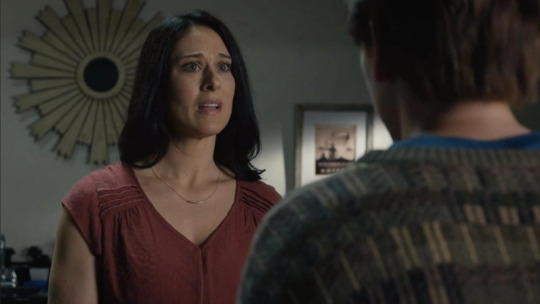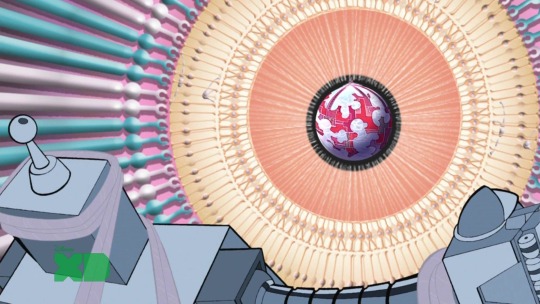#utilization management
Explore tagged Tumblr posts
Text
Utilization Management in the Era of Value-Based Care: Opportunities and Challenges
As healthcare shifts towards a value-based care model, utilization management has become an essential tool for healthcare organizations. Utilization management system refers to the process of evaluating the medical necessity, appropriateness, and efficiency of healthcare services and treatments.
In the era of value-based care, Utilization management is becoming increasingly important as healthcare shifts towards a payment model that rewards value over volume. In recent years, the healthcare industry has seen a shift from a fee-for-service model to a value-based care model. In this new paradigm, the focus is on delivering high-quality care to patients while minimizing costs and improving outcomes. One important aspect of this new model is the healthcare utilization management solution, which involves monitoring and managing the use of healthcare resources to ensure that they are being used effectively and efficiently.

One of the main opportunities for hospital utilization management software in the era of value-based care is the potential for cost savings. By carefully monitoring the use of healthcare resources, providers can identify areas where costs can be reduced without sacrificing the quality of care. Additionally, utilization management solutions can help prevent unnecessary hospital admissions and re-admissions, which can be a major driver of healthcare costs. Another opportunity for utilization management is the potential for improved patient outcomes. By ensuring that patients receive the right care at the right time, Utilization management in healthcare can help prevent complications and improve overall health outcomes.
Why is Utilization Management Important in Value-Based Care?
Value-based care is becoming increasingly important as healthcare shifts towards a payment model that rewards value over volume. It can help achieve these goals by ensuring patients receive the most appropriate and effective care based on their clinical condition.
Opportunities of Utilization Management in Value-Based Care
Improving Patient Outcomes: Utilization management enables healthcare organizations to ensure that patients receive the most appropriate and effective care based on their clinical condition. This can lead to better health outcomes, reduced complications, and shorter hospital stays.
Reducing Costs: By ensuring that patients receive only the necessary and appropriate care, utilization management can help reduce unnecessary medical expenses, which is especially important in the era of value-based care. This can also help reduce the financial burden on patients and healthcare organizations.
Enhancing Care Coordination: Utilization management can improve communication and coordination between healthcare providers, which can lead to better quality of care and patient satisfaction.
Supporting Evidence-Based Practice: Utilization management is based on evidence-based practice, which means that it is grounded in the latest research and guidelines. By using evidence-based guidelines, utilization management can help ensure that patients receive the most effective and appropriate care.
Challenges of Utilization Management in Value-Based Care
Balancing Cost and Quality: One of the biggest challenges of utilization management is balancing cost and quality. While reducing unnecessary costs is important, it is also essential to ensure that patients receive high-quality care that is appropriate for their clinical condition.
Managing Provider Resistance: Utilization management can be viewed as a threat to provider autonomy, and some providers may resist the implementation of utilization management programs. It is important to address provider concerns and communicate the benefits of utilization management to ensure provider buy-in.
Ensuring Compliance: Utilization management programs must comply with regulatory requirements and guidelines, which can be complex and time-consuming. Ensuring compliance can be a challenge, especially for smaller healthcare organizations.
Data Management: Utilization management relies heavily on data, and managing and analyzing data can be a challenge. Healthcare organizations must have the appropriate infrastructure and expertise to manage and analyze data effectively.
Conclusion
Utilization management is a crucial tool in the era of value-based care. By ensuring that patients receive the most appropriate and effective care. Utilization management also supports evidence-based practice and helps achieve the goals of value-based care.
Several challenges must be addressed, including conflicts between utilization management and patient care, and the need for accurate and timely data. By addressing these challenges and working collaboratively, providers can leverage utilization management to deliver high-quality care that is both cost-effective and patient-centred.
However, it also poses challenges, such as balancing cost and quality, managing provider resistance, ensuring compliance, and data management. Healthcare organizations must address these challenges to implement successful utilization management programs that improve patient care and reduce costs.
The Future of Utilization management in Value-Based Care is promising, with trends such as artificial intelligence, real-time data analytics, patient-generated health data, and integrated care. Utilization management is a crucial tool in the era of value-based care, providing significant opportunities for improving patient outcomes, reducing costs, and optimizing resource utilization. Healthcare organizations must implement effective Utilization management programs to ensure that they provide high-quality care while reducing costs. Artificial intelligence and machine learning will be used to analyze large volumes of data, real-time data analytics will monitor patient outcomes, patient-generated health data will improve care coordination, and integrated care will involve health care providers, patients, and other stakeholders in the decision-making process.
0 notes
Text


i noticed that mr enoch drebber has never officially had a completed fullbody reference, so i took matters into my own hands and completed him myself just for fun. it felt like dusting off and repairing an old rusty pocketwatch lmao
i added his original reference for both comparison and convenience. (he is rather tall) (and there is a bonus under the cut)

#oh my GOD this was agonizing. but so worth it. i really had some difficulties with this#but it was fun to see how far i can utilize my artistic abilities.#also you may use him if you would like. i would not want my efforts to go to waste#my goth ass cannot comprehend color very well#i was also listening to some hardcore industrial music while drawing this and i think that’s one of the ways i managed to complete this lma#enochposting#shit i draw#enoch drebber#the great ace attorney#the great ace attorney chronicles#ace attorney#dai gyakuten saiban#great ace attorney#tgaa#tgaac#aa#dgs#i wont be able to draw for DAYS agh#MY NAIL BROKE WHILE I WAS DRAWING THIS.#do it for him…
117 notes
·
View notes
Text
I'll bite and talk about something that doesn't get enough spotlight in general, which are Demetri's and Eli's family life. So obviously several fic authors have their own twists and flavors to this, but if I may sell you something for a sec.
So far into the series, what we've got are these facts:
Demetri's Mom is the only family member to be mentioned in the show.
Eli's parents were mentioned a couple of times.
That should be enough context to deduce two things:
Demetri could be an only child to a single mother, and;
Eli's parents involve themselves in the stuff that he does — including karate, who knows — though they tend to be tone deaf with his actual needs.
There's strong evidence to why the boys act the way they act (brain functions notwithstanding, but this isn't the post for that), which is why I think these deductions make sense. How their hypothetical upbringing is part and parcel to how characters behave in this series. Of course societal influence comes in second because obviously you've got a show that encourages learning karate as defense against bullies, but this show is also about generational chains and traumas! So why wouldn't their home life inform the way it informs the LaRusso's, Lawrence's, and Nichols'? But I digress.

In the span of the entire series, I've held onto this headcanon that Demetri's neuroticism and ability to anticipate his actions carefully stem from a household that needs these systems in place, much more for someone who likes to be on top of things. Since he's just a student, the only authoritative figure who can make executive decisions... is his mom. Add to the fact that she may be a working mom, so when Demetri tells Daniel about certain restrictions in learning karate, what could have made her decide to just write a letter instead vs. taking the time out to go with his son herself? I know I know it's narrative writing but like do you seeeee where I'm at here


Eli's family life is by far gave us early indications of his dynamic with his mother — but not so a father — in earlier seasons. It's possible that his mom is a stay-at-home one, but if I were to push the bounds of this box even further, I'd even speculate that she's retired early if it meant that Eli's dad is the one making most of the living. Like of course they'd get mad at Hawk for getting a tattoo at his age, I think any parent would! But the way he tells Aisha to exclude him from her stories tells us that there's not a lot that his parents know about the life he lives as Hawk. At this point we all know the kind of effort it takes to successfully carry it out because he has to go home every night. It's either he a) puts in a lot of effort into concealing this identity once he gets home, or b) his parents are rarely ever home, which again, feeds into another assumption that maybe Mrs. Moskowitz works certain hours.
All we know is they're never around a whole lot for these boys, which is sad! and also again, very Indicative of their classification as awkward nerds pre- and early karate. When I read along certain fics that consider and include how the rest of their characters besides the found families they've formed, it gives much more depth and potency to writing them, their flaws, and how they think.
For all we know, Mrs. Alexopoulos could be a lesbian making fun of her son for not slinging pussy like she does being rizzless unlike her, but don't let me explain that when we have @demetriandelibinaryboyfriends!
#binary boyfriends#demetri alexopoulos#eli moskowitz#cobra kai#this isn't so much an analysis as it is an obvious statement to include/consider when writing them with their home lives as factors#sure the writing in the show isn't top caliber#but to /some/ credit they've managed to give us literally bits and pieces of it before letting the boys set sail in a sea of violent waters#so let's just make do!#i need more character studies that deal with their folks. mentions of how their home life is. their dynamics.#bunny_bones_studio if you somehow happen to have a tumblr now and are reading this#this one also goes out to you because your fic about demetri's letters is so well-written (Just Wanted To Let You Know)#also highly recommend @baldwinboy5ive's fic Persistence of Vision#because the mention of either of their parents there is so well-utilized as a literary device for one Very Heartwarming segment to the fic#and again: different authors interpret this differently but i'm a bit tired of seeing similar patterns in establishing their home lives#when there's a lot we can make do with what we have and then spitball from there#i'm in the process of digging and spelunking through the archive these days! all the other great stuff is hidden in those pages!!!!
52 notes
·
View notes
Text



horizon forbidden west | the isle of spires 9/?
#horizon forbidden west#hfw#aloy#hfw landscapes#found some shots to make a set and tried to get a matchy color scheme#featuring the first and only time i've managed to convincingly utilize the swan dive photomode pose lol#hfw the isle of spires
42 notes
·
View notes
Text






























Super robot monkey team hyperforce go! ~background/scenery appreciation post ~
#because I just think they're so terribly underrated!#srmthfg#srmthfg!#super robot monkey team hyperforce go!#scenery#background#cartoon#art#looking through these screencaps i just thought how incredibly beautiful they are even if they are not that well detailed#they manage to set the mood for each episode perfectly#like i just noticed how in the last one with them going to the macro-cosmos#the background universe looks like a web; almost like cellular structures#it gives the impression of everything being part of something bigger; of a tissue organ or body#i really like that it's very eery#the colors are also so masterfully utilized#they literally have the skittles squad as main characters and they always find away to integrate their colors into the scenery#idk if it's the nostalgia speaking but the beautiful backgrounds and color palettes in this show really tickled the right spot of my brain#long post#pictures
132 notes
·
View notes
Text
was kakashi a good teacher? a CBE analysis that misses the fucking point
among the myriad discourses around the topic, i feel that most fans have avoided looking at the most fundamental aspect of kakashi's teaching: his teaching. today i am going to disregard every notion of child soliderism, pseudo-family dynamics, and emotional distance to discuss the really important question about kakashi's time as a teacher: did he effectively use a competency based education model to teach team 7?
what is CBE? competency based education replaces traditional grading with competencies- a simple yes/no binary. true CBE is time-variable, which means that students continue to work on competencies until they are competent. there are of course intervention points if the learning process takes longer than probable. it fixes a *lot* of problems inherent to traditional grading, and when implemented properly results in a significantly higher degree of competency in students. i don't really wanna give a whole rundown of it for. a fucking naruto meta post so i'll point you towards alfie kohn who has a blog with lots of free articles that explain a lot of the concepts around this in accessible terms. or just like. google CBE education. it's a whole thing.
before we get into kakashi, i'd like to look at the academy's teaching, as this will help us understand what he had to work with. education is a process, and poor education in student's formative years can negatively impact their ability to learn throughout their entire life. the academy overall has very poor teaching. although the final exam does seem to be competency-based, as students can pass it regardless of their prior grades, it is far from comprehensive. it needs a serious overhaul to ensure that graduating students have all the skills they need for their jounin-senseis to be able to continue their education without having to re-teach them the basics.
the academy also disregards the time-variable aspect of CBE. naruto is obviously missing fundamental information that prevents him from becoming competent in other areas, which suggests that he was pushed along the curriculum regardless of whether he displayed competency in a subject or not. this is a serious problem that makes kakashi's job a lot harder.
the academy also utilizes a public ranking system. this is very bad. traditional grades- especially when made public- create extrinsic motivation in students and limits their ability to use intrinsic motivation. systems like this hurt all students- both ones who seem to be succeeding, like sasuke and sakura, and students who seem to be failing, like naruto. they are not receiving accurate assessments of their abilities, which can lead to them internalizing harmful academic processes. the academy also lacks informational feedback and proper home integration.
to summarize: kakashi is receiving students who have been taught very poorly both in terms of information and educational habits. now let's get into the important question: is kakashi going to help or hurt them?
i'm going to break down three moments in the original naruto series where kakashi is acting as a teacher: the bell test, all of the d-ranks, and tree walking/water walking in wave. i will then give an overall analysis of his teaching.
the bell test: 0/10 kakashi what were you thinking
there are several problems with this assessment. the biggest and most obvious is that kakashi is not upfront about the nature of it. clear communication is very important in education. by not telling team 7 what the real goal of the test was, he handicapped their ability severely. he also takes several measures to make team 7 more anxious about the assessment, which is generally frowned upon. teachers should minimize student's apprehension about assessments- especially in CBE, where assessments should be repeated regularly to measure student progress. it's also not time-variable. one time assessments suck and don't make any sense. they punish failure and decrease intrinsic motivation.
however, it isn't a completely terrible exercise. for one, both the fake goal and the real goal are competencies, which is good. the open-ended nature of his instructions (when taken at face value) is also actually very good. they allow team 7 space to use critical thinking, allowing kakashi to not just understand their base skills and competencies, but their abilities to apply them. he also does a very good job of providing active feedback as the test goes on. still fucking sucks though "look underneath the underneath" my ass that's not how assessments fucking work
d-ranks: 4/10 mostly just busywork
the idea of d-ranks is to get genin used to the bureaucratic system konoha uses. busy work has a place. unfortunately, kakashi does not balance it out with other, more engaging activities, and fails to extrinsically reward team 7 when they complete d-ranks, both of which are critical pieces of effectively helping students with competencies that don't require actual learning.
tree walking/water walking: 10/10 kakashi effectively utilizes CBE. like to a scary degree. like better than some actual teachers i've had to work with. what the fuck
kakashi sets out clear expectations for competency: being able to tree walk. he gives a demonstration and then leaves team 7 to experiment and begin learning. he provides advice when asked, but does not take away their agency in their learning process. he allows them to fail in a safe environment where they can effectively learn from it. he also holds the lesson to CBE's time-variable element. when sakura figures tree walking out earlier than naruto and sasuke, he moves her on to a more advanced competency that builds on the previous skill.
i've seen some critiques of this, mostly saying that kakashi didn't actively teach them, but i disagree. an important part of education is knowing when to step back and let students struggle. although i think he could have been more active in offering encouragement (both naruto and sasuke could have benefited from positive language through the lesson), that's pretty much the only thing i can think of that would have improved this. awesome teaching moments. i guess.
all in all, i think that kakashi provided team 7 with a better education experience than the academy did. but the bar was really fucking low. i can't call him a good teacher, because he's really inconsistent. he does have the benefit of having a small class size, which theoretically should allow him to customize his curriculum for each student- which he does do when he's actually teaching. however, his classroom management skills suck and most of the time he isn't actually teaching.
i don't think he's a good teacher. i ...do think he's better than most teachers in naruto? so. take that how you will.
#naruto meta#kakashi#team 7#fkaflfgkjlfgjdl i know this is ridiculous#but. head in hands. i seriously can't handle it when people call iruka a good teacher#my man was NOT effectively utilizing CBE!!!! and even outside of that his classroom management sucked!!!!#please get my man some actual education training i just know that none of these people know what they're doing#a cruel government is an incompetent government <3 babygirl you're not training anyone properly#sorry if this is incomprehensible btw i'm. i'm not sure what parts of education people do and don't understand T_T#i did my best to explain stuff but if anything specific needs elaboration i'd be happy to!
10 notes
·
View notes
Text
only a few more days. trying to like. not entirely freak out. things are gonna work fine. but im still a little 🥴
#borbtalks#landlord is like 'yeah the company is working on emailing u ur lease !! it'll tell u what utilities u need to set up in advance !!'#but i havent gotten it yet. and besties there's only one business day left before my move in day#and it's an electronic lock so i wont get the code until i do all the things on the checklist first 🥴#and the management office will be closed for the weekend. and monday.#so if they don't get me my lease early enough tomorrow 🥴#URGHHH GONNA GO VAPE ABOUT IT. IT'LL BE FINE. PLEASE UNIVERSE. LET IT BE FINE 🙏
8 notes
·
View notes
Link
Like “realism,” utilitarianism is often code for “being a selfish jerk.” Think of “longtermism,” which concerns itself with a hypothetical future containing trillions of synthetic, simulated humans living inside computers. Making each of those synthetic people very slightly happier will produce a gigantic aggregate benefit.
Even a very small amount of additional happiness multiplied by trillions of imaginary people adds up to more happiness than all of the people currently alive can ever experience. By that reasoning, there’s no amount of misery one could inflict on today’s living people that would outweigh even the chance of bringing a dollop of joy to those far-future sims.
For the selfish, utilitarianism works best when it provides a justification for making themselves better off at others’ expense. At first blush, longtermism militates for everyone to don hairshirts in support of the happiness of those trillions of future sims.
But longtermism is an offshoot of “effective altruism” (whose leading spokescriminal and financier was Sam Bankman-Fried), which offers an ingenious solution to this problem: earning to give.
“Earning to give” is the utilitarian, effective altruist notion that one should take the highest-paying job one can get, even if that job involves inflicting untold misery through pollution, inequality and exploitation — provided that you eventually give all the gains away to good causes that outweigh the harm you did while earning them.
And since succeeding as (say) a high-powered investment banker requires that you wear the finest clothes, drive a showy car, live in a fancy home, fly first class and eat at Michelin-starred restaurants, all of these comforts can be explained as utilitarian necessities one must endure on the path to earning enough to give away so much that you make lots of people better off.
- Rich People's Gain is Worth Less than Poor People's Pain: A new way to think about utilitarianism, courtesy of the Office of Management and Budget
#office of management and budget#utilitarianism#rationalism#earning to give#marginal revolution#marginal utility#omb#longtermism#intellectual honesty
101 notes
·
View notes
Text
I need someone to pay me money for existing
#literally so sick of being paid once a month and forced to expect it to stretch all month#its not even 2k how am i supposed to buy food and bus passes and ubers to get places for two people#when the other person doesnt manage their money AT ALL#i pay half the rent and all the utilities and am in charge of all the chores EXCEPT doing dishes (have to put them away tho) and#folding the laundry (have to do it myself first tho and the clean clothes will sit on the couch for weeks)#i am so sick of being underpaid and taken advantage of#ecks speaks
7 notes
·
View notes
Text
☁️
#I was promised LOWER TEMPS#I was promised a COLD FRONT#instead it is still in the mid-70’s with humidity at like 70%#I’m gonna have to drag out my portable ac for the living room#my old beater of a window unit can manage my bedroom but that’s about it#it does help maintain the house while I’m gone but I’m terrified of my next utility bill#I’ve already had so many bug bites#it’s so gross out#I hate this#(the thunderstorm the night before last was nice)
10 notes
·
View notes
Text
truly so baffling to me to hear people complain about their electronics like my coworker was complaining that her 2017 Mac was so slow its barely functional and it’s like what do you MEAN your 8 year old Mac is dead? mine is from 2013 and runs flawlessly?? what are you doing to your $1000 machine ??? filling it with peanut butter and TikTok viruses?????
#and I’m fairly callous with mine. I’ll download anything. (although I am a tech guy so like I can think critically but#I do tend to download a bunch of random shit from like Reddit threads and forums lol) and yet my Mac is like practically mint.#his only crime is sometimes he dies at 20% and gets hot and can’t run 32bit programs (<apple’s fault)#he’s still running max graphics stardew valley with 900 mods and Minecraft mid graphics with 200 and like 30fps (<good for modded mc)#Apple truly making solid products considering every midrange windows pc I’ve used became garbage in like 4-5 years 🫥#ive spent more on my 4 windows PCs in the last 20 years than this one Mac that will probably keep trucking for another 10 years.#Like sorry im not an apple freak but considering how many devices I’ve bought used and fiddled with…… kind of incredible how Apple has#somehow managed to come out on top in the longevity/ease of use/privacy departments.#if windows didn’t force you to update and use their bloatware bullshit and not let you CONTROL THE MACHINE YOU BOUGHT id be less mad#but every time I use win 10 or 11 I want to shoot myself in the head. win1011 softwares practically feel like malware.#a day in the life of steeve#only reason I would ever have a windows device is to play sims 2. (works on Mac but no utilities which are indispensable these days).#and I’m thankful Emily has a top tier gaming laptop for me to use for sims <3#if I ever need another pc I think I’ll venture into Linux. my steam deck runs Linux and it feel so pleasant and friendly compared to win11.
6 notes
·
View notes
Text
i sent an email to a leasing agent about a possible apartment heres hoping for good news
#wine drunk wandering#its literally around the corner from my other best friend from high school and her boyfriend#the one i like the best is on the third floor of a subdivided house with a balcony and stuff!#and we could adopt CATS down the line!!!#plus its 1800 a month without utilities which is so much easier to manage with a roommate#god i hope i hear from them soon
5 notes
·
View notes
Text
man i think i’m 5 seconds away from a mental breakdown
#I’m actually running out of money now despite working 6 days a week and making 6 figures#Because I bought my acreage with my brother and factored him paying 1/3 of the expenses BUT he’s decided to be unemployed for 1.5 years#I pay the mortgage mortgage insurance utilities internet groceries#I have $800/month in student loan payments#I have to spend like $150/week on gas because my commute is 2 hrs round trip every day#I only eat one meal a day usually because I don’t have the time to grocery shop or cook usually and my brother only cooks for himself#I do all of the chores and at least 1/2 of the yard work#I have the heaviest workload of any of my coworkers (which has been acknowledged but my manager says his hands are tied#Because if he took work off of my plate he’s have to give it to someone else and there is no one else)#I’m being severely underpaid at my job ($4 under the STARTING wage for a pharmacist now despite me working there for 3 years.#But I “got the largest raise last year” lmfao#I’ve been seeing someone but he works nights and his schedule is wack and it results in me going to bed at 3am some nights#I’m also on call this week so I have to be ready to answer calls at any time past 11pm#My hair is legit pulling out in clumps and my hair is half of my personality :(#i’m about to mcfuckin lose it#Brain feels like mashed potato#Oh also I’m on my fucking period
13 notes
·
View notes
Text
Contemplating: Necromancy and the Utility of the Skeleton
From aesthetics alone the skeleton does many things for the necromancer. A clear benefit is simply in the knowledge of the subject being a dead thing in and of itself. With any variation of the corpse from zombie to revenant there can be doubts at a glance as to what one is dealing with but moving bones are distinct at most distances and let a person know that any harm they deal to it, accidental or otherwise, wont hurt a living thing. On the other side, the person seeing the skeleton will know that it won't feel pain and has no nervous system holding it back in how strong it will strike someone else. This functions as a form of deterrence from combat as well as telegraphs the danger of handling the skeleton beyond its designated task.
The skeleton, contrary to common sense, is less cost effective than a zombie in terms of raising. The mechanism of imprinting magic upon a corpse via its soulless form means that with less material there, there is more work and more raw magical structure needed to maintain the skeleton. This being said, the zombie will decay and are a short term solution sonits better to invest as a skeleton will be cost effective over time and has the added benefit of not smelling awful. Many an old necromancer cut their noses off and burned their sinuses not just to resemble a corpse in their horde as camouflage, but more so to kill the smell of working with so many zombies.
At an average weight of 20 pounds, the human skeleton is very portable if a single servant is needed and one is conserving their magic between uses. This does covert an unit of 100 servants to about a ton, which could staff a mansion easily and handle all tasks besides handling guests and the cooking for obvious reasons. Like with other skeletons, a human skeleton can utilize their ribs as a means of storage or carrying tools to keep their hands free. Special tools could easily be made for a gardener or a maid to reach in and tend to their tasks while having free hands and look presentable if a chest cover is used to tastefully hide dirty or worn tools.
Besides issues of durability which can be addressed with coatings and reinforcements to the structure of the skeleton, bones tend to still be sturdy even when dry and set, only they cannot self-repair so any damage will need prevented or filled as it occurs. Skeletons are not an unlimited resource, as are bodies in general, but those gathered and maintained properly in a closed and respectful environment can last a lifetime.
#fantasy#necromancy#undead#skeleton#utility#servant#resource management#contemplating#skeletal remains#Skeletal#Bone preservation#preservation
6 notes
·
View notes
Text
“we have two versions of wesper now! enjoy them both :)” we did not need two and no i won’t
#mind you#the 'second version' is the laziest#most lacklustre#borderline fetishistic#and UNQUESTIONABLY biphobic#version of wesper they could have created#jesper sleeping with some random stablehand in the middle of a (human trafficking) mission in s1... like. oh ok this is weird haha#jesper in s2 canonically sleeping around so much that he doesnt even remember wylan until they're in some contrived forced proximity trope#(how did they not get shot in that scene)#how they managed to utilize biphobic stereotypes without even mentioning his bisexuality is really crazy#also who even is show wylan outside of wesper#thanks for only using his disability as ship conflict ig#the standards for book to tv adaptations are so low#like what you like or whatever. no one is stopping you#but the number of posts being like 'yeah they're different but both are good!!! :)' ... TO YOU..#tO YOU!#anti shadow and bone#anti sab
65 notes
·
View notes
Text
Okay, I was an anxious mess over this new job for nothing lol
#🎃 Cryptid sighting#I’m sure there will be tasks that will be challenging but most of it is very familiar#And tbh- I was most nervous over the driving component of the job because they made a big deal of verifying my driving record#Which is spotless … because I haven’t driven a car on a road in almost a decade lol#I’ve driven a lot of other vehicles but not something with a stick shift or general street legal vehicle complexities#Like- forklifts & pullers & ride-on utility vacuums/scrubbers are super basic control wise#But I was terrified that I’d be driving a regular truck right away#And instead once I do drive anything here it’ll be a glorified golf cart with a little pick-up back & simpler controls than a puller#And besides having to learn my way around a hecking labyrinth- it sounds like it’ll be a manageable job#Also like 90% of my department is lgbtqia+ dgfdgfdgd
5 notes
·
View notes